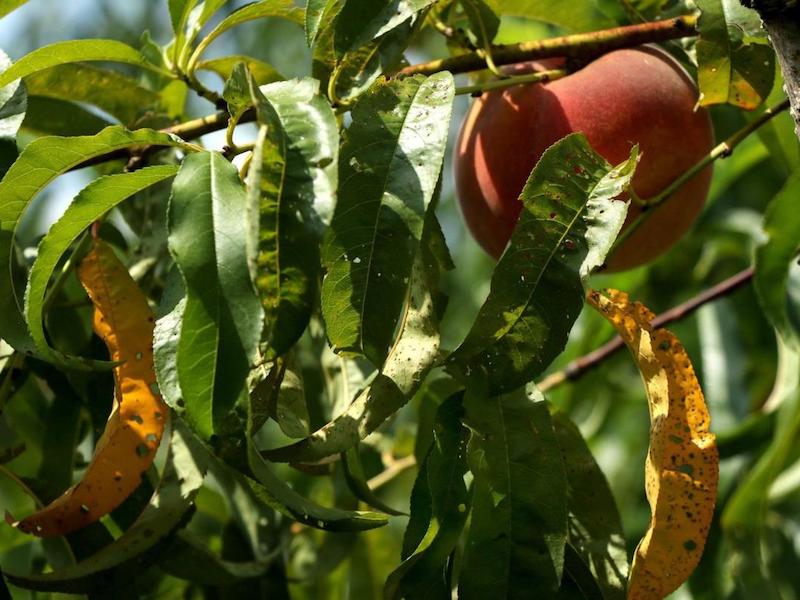
08 Jun Court rules dicamba illegal on crops. Bayer stands to lose millions
Dicamba | St. Louis Post-Dispatch | Bryce Gray | June 5, 2020
“ST. LOUIS — A federal appeals court has ruled that Monsanto’s controversial weedkiller dicamba can no longer legally be sprayed over crops, or sold for that use, leaving farmers across the country with product they can’t use, and likely costing Monsanto’s successor, Bayer, tens of millions of dollars in lost sales this year alone.
The unanimous 56-page ruling handed down on Wednesday by three judges from the U.S. Ninth Circuit Court of Appeals in San Francisco said that the Environmental Protection Agency’s most recent approval of top dicamba herbicides in 2018 “substantially understated” multiple risks recognized by the agency, and “also entirely failed to acknowledge” others.
The decision will almost certainly have profound effects not only for Bayer and other companies that produce the drift-prone herbicide, but also for farmers across the country’s soybean acreage, where seeds engineered to resist the chemical have soared to popularity in recent years.
“We strongly disagree with the ruling and are assessing our next steps,” Bayer said in a statement. “We will also await direction from the EPA on actions it may take in response to the ruling.”
Analysts said the ruling could cost German chemical company, BASF — a maker of one dicamba product in question — $100 million in lost sales this year.
Lost sales at Bayer, said Sebastian Bray, an analyst at the German multinational investment bank Berenberg, could be “substantially higher.”
The technology’s fast and broad adoption has coincided with — and even been fueled by — widespread complaints about dicamba-based herbicides drifting off-target. The chemical’s tendency to contaminate neighboring fields has left millions of acres vulnerable to damage, wherever nearby crops, trees and other plants aren’t genetically modified to tolerate the spray.
Just a few months ago, a jury awarded $265 million to Missouri’s largest peach farmer, Bill Bader, after his attorneys convinced it that dicamba ruined his orchard. Dozens of other lawsuits have been filed.
Still, the sudden ineligibility of a blockbuster but divisive product now poses quite a wrinkle for farmers.
“We’re in the middle of spray season,” said Andrew Thostenson, a pesticide specialist for North Dakota State University’s extension service. “That means they’re having to scramble pretty hard right now. It’s not a good thing, I can tell you that.”
Some farmers said on Thursday that they expect an appeal from Bayer. Others said they didn’t think many would follow the court’s ruling.
“Eighty percent of the beans have been planted, and I don’t know anyone who’s going to change gears at this point,” said Tom Burnham, who farms in Arkansas and in Missouri. “Those decisions have been made.”
Burnham, an outspoken and longtime critic of dicamba, recently adopted dicamba-tolerant crops himself, to protect his yields from repeated damage. Now, he said on Thursday, the court is changing the rules “in the middle of the game.”
Hundreds of farmers accused neighbors of illegally applying the herbicide in 2015 and 2016. Some said there is significant risk of that, again.
“It’s too early to start thinking that there will be widespread illegal applications. (But) that’s certainly a concern,” said Thostenson.
Enforcement of any dicamba bans would likely fall to agencies such as state departments of agriculture.
A spokeswoman for the Missouri Department of Agriculture on Thursday said the department is waiting for the EPA to clarify the impact of the judgement.
Bayer did not say if it plans to appeal the decision. The company has been a central player in the dispute ever since its 2018 acquisition of Monsanto, the biotechnology giant headquartered in Creve Coeur, which pioneered dicamba-based soybean and cotton seed varieties several years ago.
An appeal could take two potential routes, said attorneys for the plaintiffs — a coalition of farmers and environmental advocacy organizations. One option would be to appeal directly to the U.S. Supreme Court. An alternative would be to go back to the Ninth Circuit and ask for a rehearing, said Stephanie Parent, a senior attorney at the Center for Biological Diversity — one of the nonprofit organizations that brought suit.
Some lawyers said that short list of appeal venues puts dicamba manufacturers in a tough position.
“Monsanto is running out of runway here. There’s not many places they can go,” said Paul Lesko, a St. Louis-based attorney involved with the pipeline of dicamba lawsuits awaiting trial.
He, and others, said that the new ruling provides further ammunition to future dicamba plaintiffs — adding to the “road map” from Bader’s February verdict.
The EPA’s approval of the product “is their most powerful defense,” Lesko said. “That’s what they’ve touted all along. And that’s gone.””
FREE Consultation | 314-833-4827
Dicamba Damage Lawyers at Peiffer Wolf Carr & Kane are fighting on behalf of farmers and landowners to seek maximum compensation for the damages suffered due to Dicamba Damage. If you suspect that your crops or plants have been damaged by dicamba, contact Peiffer Wolf Carr & Kane by filling out a Contact Form or by calling 314-833-4827 for a FREE Consultation.



